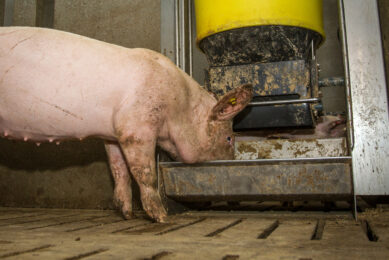Research: coated phytase benefits pig industry
New techniques have been developed to protect phytase enzymes in feed against the detrimental effects of high temperatures during pelleting, but does not limit enzyme release, Canadian research showed.
Cutting-edge “Thermo Protection Technology” which protects phytase from the adverse effects of high temperatures during feed conditioning and pelleting represents an exciting step forward for the pig feed industry.
At the 11th Biennial Conference of the Australasian Pig Science Association, Dr Augustine Owusu-Asiedu of Dansico Animal Nutrition presented a paper entitled ‘Bone mineralization and phosphorus digestibility in weaned pigs fed diets containing thermostable phytase’.
Efficacy of phytase in pigs
In this paper he outlined the results of a trial conducted by the University of Alberta, Canada to determine whether coating a new-generation bacteria-derived phytase to confer thermostability up to 90ºC had any detrimental effects on the efficacy of the phytase in the pig.
In the trial 28 day old male weaned pigs were fed diets reduced in calcium and phosphorus, and containing either the uncoated or coated new-generation phytase.
Liveweight gain, feed conversion ratio, phosphorus digestibility and bone mineralisation were then measured after three weeks.
No significant differences were found between pigs fed either the uncoated or the coated phytase, confirming that the coating allows phytase to be released effectively in the pig’s gut.
Related websites:











